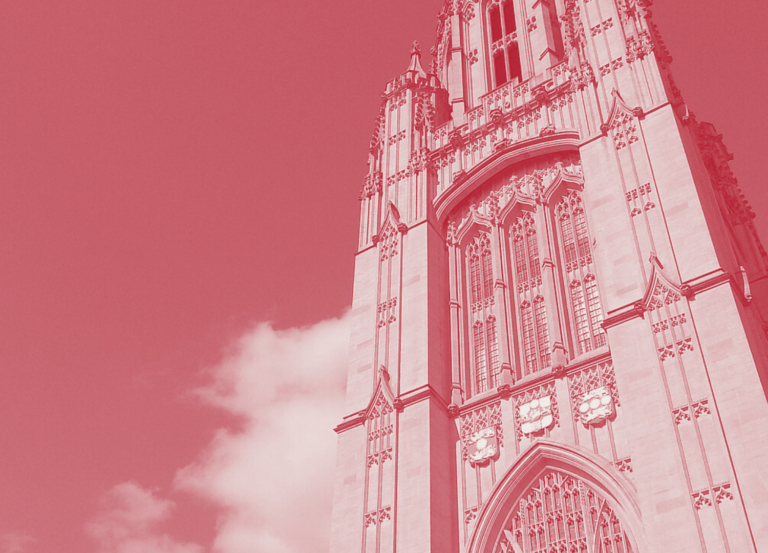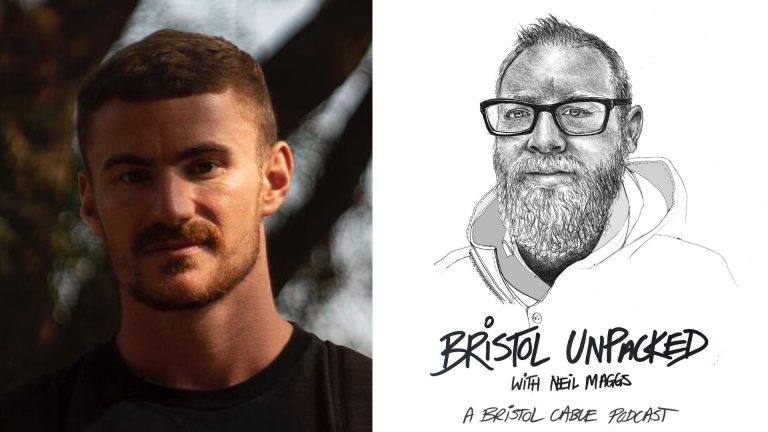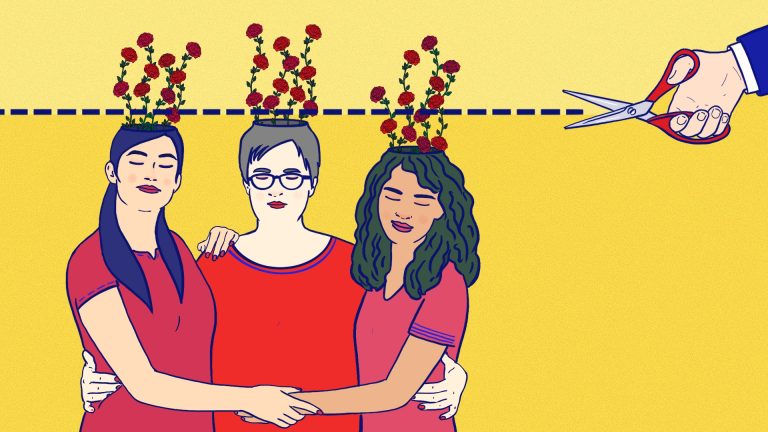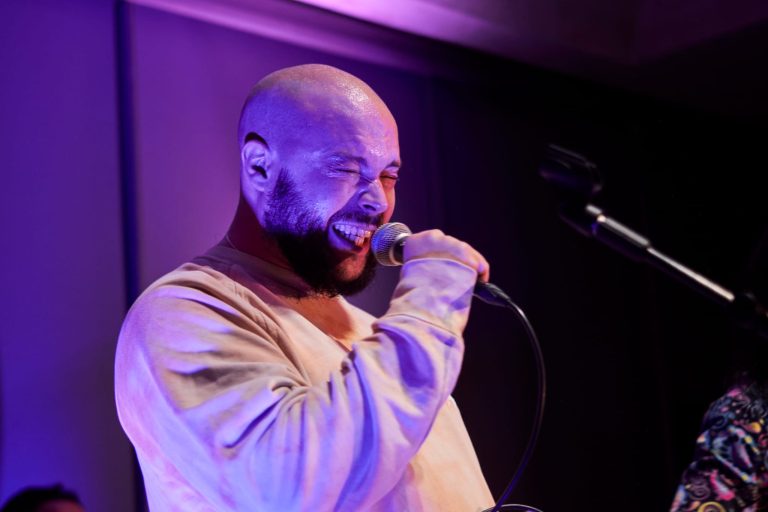‘The most liberating feeling’: how an ADHD diagnosis changed one Bristol business owner’s life
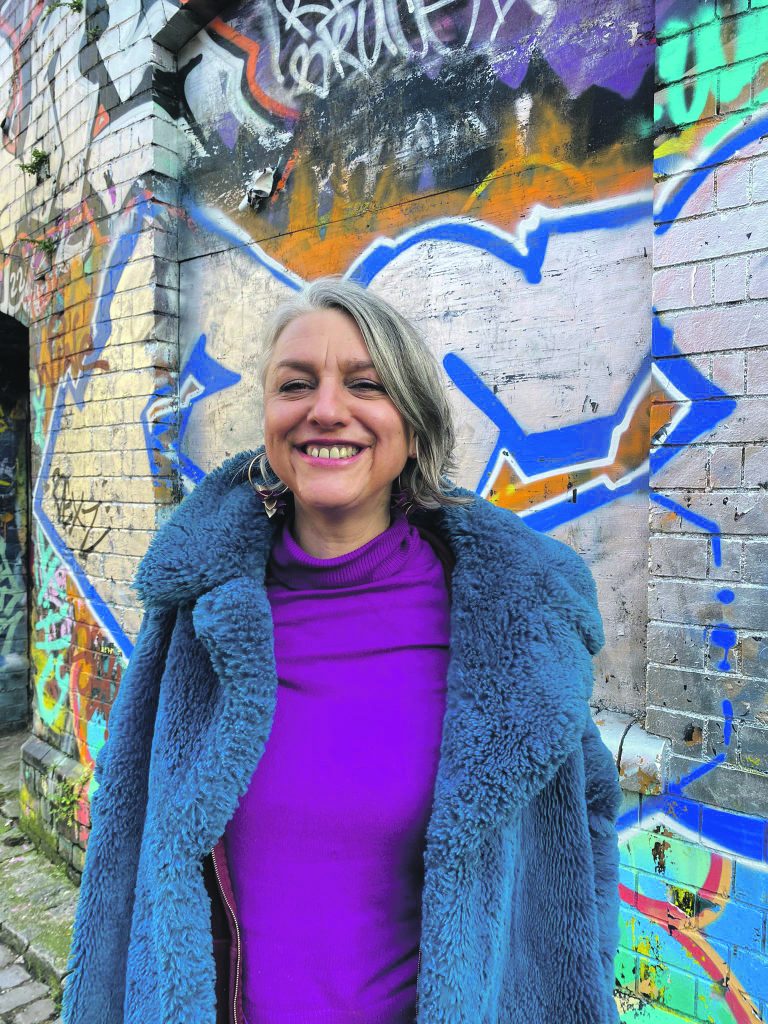
Being a business owner with attention deficit hyperactivity disorder (ADHD) has its challenges, but for Lisa Whitehouse, it has also been life-changing in a positive way.
“After my diagnosis of ADHD, I understood myself for the first time in my life,” says the CEO of Bristol-based community interest company Interculture, which she founded in 2015.
Tucked away in St Paul’s, Interculture is home to a small team led by Lisa. It specialises in creating intersectional communities and networks, bringing together individuals from diverse backgrounds to ‘break down cultural barriers’ by offering allyship training, consultancy and community events. Lisa founded Interculture after organising a peace demo with the Bristol Muslim Cultural Society shortly following the Charlie Hebdo attacks in Paris.
Despite Interculture’s success working with numerous organisations and businesses across Bristol, her experience as a first-time business owner and founder has also been one of self-discovery – she was diagnosed last year with ADHD at the age of 48.
In 2022, her at-the-time untreated ADHD and fibroids led to burnout, culminating in five months off work. In retrospect, she identifies suffering from ‘ADHD burnout’ – reported as a shared experience by people who have long-term undiagnosed or unmanaged symptoms of ADHD.
“I just felt so completely and utterly overwhelmed,” she says. “I remember at one point sitting in a café, a place I’m usually most comfortable in, with an overwhelming sense of disconnection and fear – I knew I had to stop.”
It was during this time, in recovery from a near-fatal haemorrhage after a fibroid operation, that she saw a video about ADHD, a lightbulb moment Lisa says she’ll never forget. Two months later, she was finally diagnosed with ‘hyperactive type’ ADHD.
“Ever since being diagnosed, I’ve been able to feel self-compassion, self-love and care for myself that I previously was never able to,” she says.
Many people may go through cycles of therapy, medication and misdiagnosis before finally receiving the correct diagnosis. “I completed a master’s, coaching programmes, therapy programmes, entrepreneurship training, struggling through without anyone ever identifying the possibility that something was going on,” Lisa says.
Women tend to be diagnosed with ADHD later in life than men, which is frequently attributed to symptom differences between the sexes and a lack of widely available education and resources. It’s slowly changing, but Lisa still thinks there is a long way to go.
According to the American Study of Psychiatry, approximately 4.4% of the general population are estimated to have ADHD – yet waiting lists for treatment remain long, and underdiagnosis is still prevalent.
Advocating for people with ADHD
This experience of late diagnosis has led ADHD advocacy to become an essential mission for Interculture. In December, the organisation held an event at the Malcolm X Centre championing the voices of people with ADHD, focusing on intersectionality and underrepresented voices. More than 100 people attended, tackling how ADHD relates to prison sentencing, addiction, queerness, being a minority and co-morbid mental health issues.
They have also delivered two ADHD training sessions in City Hall for employability coaches working with the council. All of this came within 11 months of the video that prompted Lisa’s diagnosis.
Before Interculture, Lisa spent two decades teaching English and is also fluent in Spanish, Italian and French. Her difficulties stemming from the undiagnosed ADHD often made her feel unemployable elsewhere.
“I genuinely didn’t think anyone would hire me, because I struggled,” she says. “In hindsight, I can tell I suffered greatly from impostor syndrome, low self-esteem and a lack of understanding of how my brain works.”
Research shows that entrepreneurs and business owners are more likely to have an ADHD diagnosis. The flexibility, creativity, and freedom from the restraints of traditional office life – often unfriendly to neurodivergent people – can make starting your own business an attractive venture.
But ADHD can cause time management, prioritisation, and focus issues, meaning that admin and the more ‘mundane’ necessities of running a business can be challenging.
“I just end up prioritising the aspects I enjoy the most – creating the networks, the community and the people – I sometimes overlook creating the financial stability crucial for a business to continue,” Lisa says.
Rejection sensitivity dysphoria, an experience linked to ADHD where perceived rejection, criticism or failure can cause severe distress, has also been a significant barrier.
Lisa says Access to Work, a government scheme providing support for disabled and neurodivergent people at work, has been a game changer. She now receives ADHD coaching and part-time business admin support.
With the newly accessed support and awareness, Lisa is hopeful for the future of Interculture and seeks volunteers, collaborations and sponsorship opportunities with wider Bristol-based networks.
As for her ADHD, the diagnosis “has been the most liberating feeling”, she says. “I can harness the strengths it gives me whilst being compassionate with the areas I struggle with, rather than berating myself like I used to.
“I hope through spreading awareness, other people can feel the same way.”
To learn more, visit Interculture’s website or social channels.
Independent. Investigative. Indispensable.
Investigative journalism strengthens democracy – it’s a necessity, not a luxury.
The Cable is Bristol’s independent, investigative newsroom. Owned and steered by more than 2,500 members, we produce award-winning journalism that digs deep into what’s happening in Bristol.
We are on a mission to become sustainable, and to do that we need more members. Will you help us get there?
Join the Cable today

